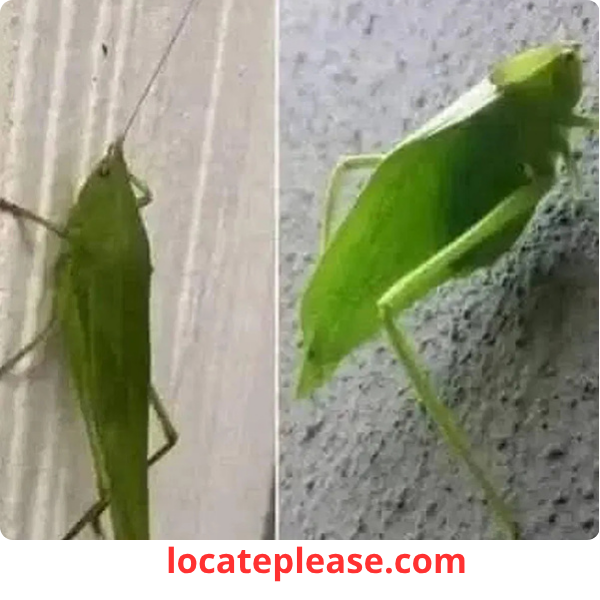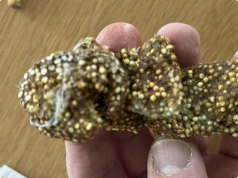Did you know that the arrival of a tiny insect in your home might be more than just an accidental intrusion? It could be a message — subtle, quiet, but deeply meaningful. Meet the leaf hopper , a remarkable little creature often mistaken for a speck of green on a plant, yet one that carries profound significance in the natural world.
With its leaf-like appearance and delicate movements, the leaf hopper is not merely an insect; it’s a messenger from nature , reminding us of the intricate web of life we are all part of. In this article, we explore the hidden importance of the leaf hopper, its role in maintaining ecological balance, and what its presence — especially near our homes — might mean for the health of our planet.
The Leaf Hopper: Nature’s Master of Camouflage
At first glance, the leaf hopper might go unnoticed. Measuring only a few millimeters long, it blends seamlessly into its surroundings with a body shaped and colored like a fresh green leaf. This extraordinary camouflage isn’t just for show — it’s a survival strategy evolved over millennia to avoid predators such as birds, spiders, and other insects.
But beyond its clever disguise, the leaf hopper plays a vital role in the ecosystem. As herbivores, they feed on plant sap, helping regulate plant growth and preventing any single species from dominating an area. This gentle pruning promotes plant diversity , which in turn supports a wider range of wildlife.
A Key Player in Biodiversity
Despite their small size, leaf hoppers are ecosystem engineers in their own right. Here’s how:
- Balancing Plant Populations: By feeding selectively on certain plants, they help maintain a balanced distribution of flora.
- Supporting the Food Chain: They serve as a crucial food source for many animals, including birds, frogs, and predatory insects like ladybugs and praying mantises.
- Indicators of Environmental Health: A thriving population of leaf hoppers often signals a healthy, diverse habitat. Conversely, their decline can point to pollution, habitat destruction, or climate shifts.
Without these tiny creatures, entire food chains could unravel. Their presence is a sign that nature is functioning as it should — quietly, efficiently, and harmoniously.
When Leaf Hoppers Come Indoors: A Message from the Wild
If you’ve recently spotted a leaf hopper inside your home, don’t reach for the spray bottle just yet. While it may seem like a random occurrence, it could actually be a gentle signal from the environment .
An increase in leaf hoppers (or similar insects) entering homes may reflect broader environmental changes:
- Habitat loss due to urban expansion
- Climate fluctuations pushing insects into new areas
- Disruption of predator populations (like birds or bats)
- Overuse of pesticides that disturb natural balances
In essence, when nature sends its messengers indoors, it’s often because their outdoor world is under stress. The leaf hopper’s journey into your living room might be a quiet plea for awareness — a reminder that human activity has far-reaching consequences on even the smallest lives.
Environmental Responsibility: Listening to Nature’s Whispers
The appearance of a leaf hopper shouldn’t be seen as an invasion, but rather as an invitation — to observe, reflect, and act. We are not separate from nature; we are part of it. Every choice we make, from the plants in our garden to the chemicals we use, ripples through the ecosystem.
Here’s how you can respond mindfully:
- Create insect-friendly spaces: Plant native flowers and shrubs to support local biodiversity.
- Avoid chemical pesticides: Opt for natural alternatives that protect beneficial insects.
- Let your garden grow wild: A slightly untamed yard offers shelter and food for countless creatures.
- Educate others: Share the importance of insects with children, neighbors, and communities.
By welcoming insects like the leaf hopper instead of fearing them, we begin to rebuild a relationship of respect and coexistence with the natural world.
A Call to Harmony, Not War
The next time you spot a leaf hopper resting on your windowsill or fluttering across your kitchen, pause. Don’t swat. Don’t panic. Instead, consider it a small ambassador from the wild , carrying a message of balance, resilience, and interconnection.
In a world increasingly disconnected from nature, these tiny beings remind us that every organism — no matter how small — has purpose and value. The leaf hopper doesn’t demand attention, but if we’re willing to listen, it teaches us about sustainability, adaptation, and the quiet strength of life.
Let’s honor that lesson. Let’s open our homes not just to light and air, but to awareness. And let’s remember: protecting the smallest among us is one of the greatest things we can do for our planet.
Nature speaks in whispers. The leaf hopper is one voice. Are we ready to listen?






